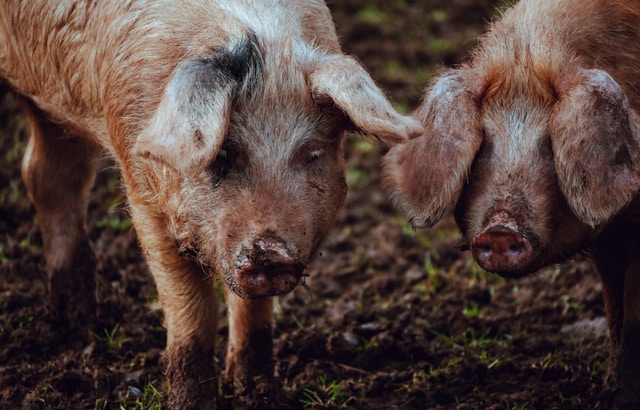“Être dans la lune” and 9 Other Fun French Idioms

Unsplash: Mathieu Chassara
French is one of the United Nations' six official languages, and it has a rich cultural heritage. Like other languages, French is full of fun idiomatic expressions, aka expressions françaises. These expressions are quirky, amusing, and just plain bizarre but they are often used in daily life.
As a French learner, it is important to learn these unique expressions so that you can gain a deeper understanding of French culture. At the same time, learning what they mean and knowing how to use them can make you sound more natural and authentic, as if you’ve been living in France your whole life.
So if you’re trying to figure out how to zhuzh up your French dialogues, here’s a selection of wonderful French idiomatic expressions to help you get started!
1. Mettre les points sur les i
Literal translation – to put the dot(s) on the i
Actual meaning – when someone is clarifying something by giving more details; to be accurate so that no one is confused
English equivalent – to make things clear
French sentence – J’ai essayé de mettre les points sur les i avec Amélie, mais elle est toujours confuse.
English translation – I tried making things clear with Amélie but she is still confused.

Giphy / Maudit
2. Avoir le rire jaune
Literal translation – having the yellow laugh
Actual meaning – to laugh forcefully even when disappointed or angry
English equivalent – to fake laugh
French sentence – Shrek a ri jaune quand il a entendu la mauvaise blague.
English translation – Shrek fake laughed when he heard the bad joke.

Giphy
3. Ne pas vendre la peau de l’ours avant de l’avoir tué
Literal translation – don’t sell the bear’s skin before killing it
Actual meaning – to not get ahead of yourself
English equivalent – don’t count your chickens before they’ve hatched
French sentence – Tandis que vous n’avez pas gagné le prix, il ne faut pas vendre la peau de l’ours avant de l’avoir tué.
English translation – As long as you haven't won the prize, don’t count your chickens before they’ve hatched.

Giphy
4. Il fait un froid de canard
Literal translation – it’s cold as a duck
Actual meaning – extremely cold weather
English equivalent – it’s freezing cold
French sentence – Portez deux manteaux car il fait un froid de canard dehors.
English translation – Wear two coats because it’s freezing cold outside.

Giphy
5. Avoir la moutarde qui monte au nez
Literal translation – to have mustard climbing up the nose
Actual meaning – to get angry
English equivalent – to get flared up
French sentence – Ne me parles pas, j'ai la moutarde qui monte au nez.
English translation – Don't talk to me, I am getting flared up.

Giphy / Searchlight Pictures
6. Avoir les chevilles qui enflent
Literal translation – to have ankles that swell
Actual meaning – to be self-centered or conceited
English equivalent – to be full of oneself
French sentence – Camille a les chevilles qui enflent si elle pense qu'elle va gagner le concours.
English translation – Camille is very full of herself if she thinks she’s going to win the contest.

Giphy / Bounce
7. Avoir un chat dans la gorge
Literal translation – to have a cat in the throat
Actual meaning – to have difficulty of speaking
English equivalent – to have a frog in the throat
French sentence – Il a un chat dans la gorge donc il ne peut pas parler.
English translation – He has a frog in my throat so he can’t speak.

Giphy / Stromae
8. Être dans la lune
Literal translation – to be in the moon
Actual meaning – to describe someone who is absent-minded; to be simply distracted
English equivalent – to have your head in the clouds
French sentence – Elle dort ou elle est dans la lune?
English translation – Is she sleeping or is her head in the clouds?

Giphy / Searchlight Pictures
9. Se vendre comme des petits pains
Literal translation – selling like small breads
Actual meaning – to sell quickly and effortlessly
English equivalent – to sell like hotcakes
French sentence – Les sacs se vendent comme des petits pains.
English translation – The bags are selling like hotcakes.

Giphy
10. Ce n'est pas tes oignons
Literal translation – it’s not your onions
Actual meaning – none of your business
English equivalent – to mind your own business
French sentence – Arrête de poser des questions, ce n'est pas tes oignons.
English translation – Stop asking questions, it’s none of your business.

Giphy / Netflix España


